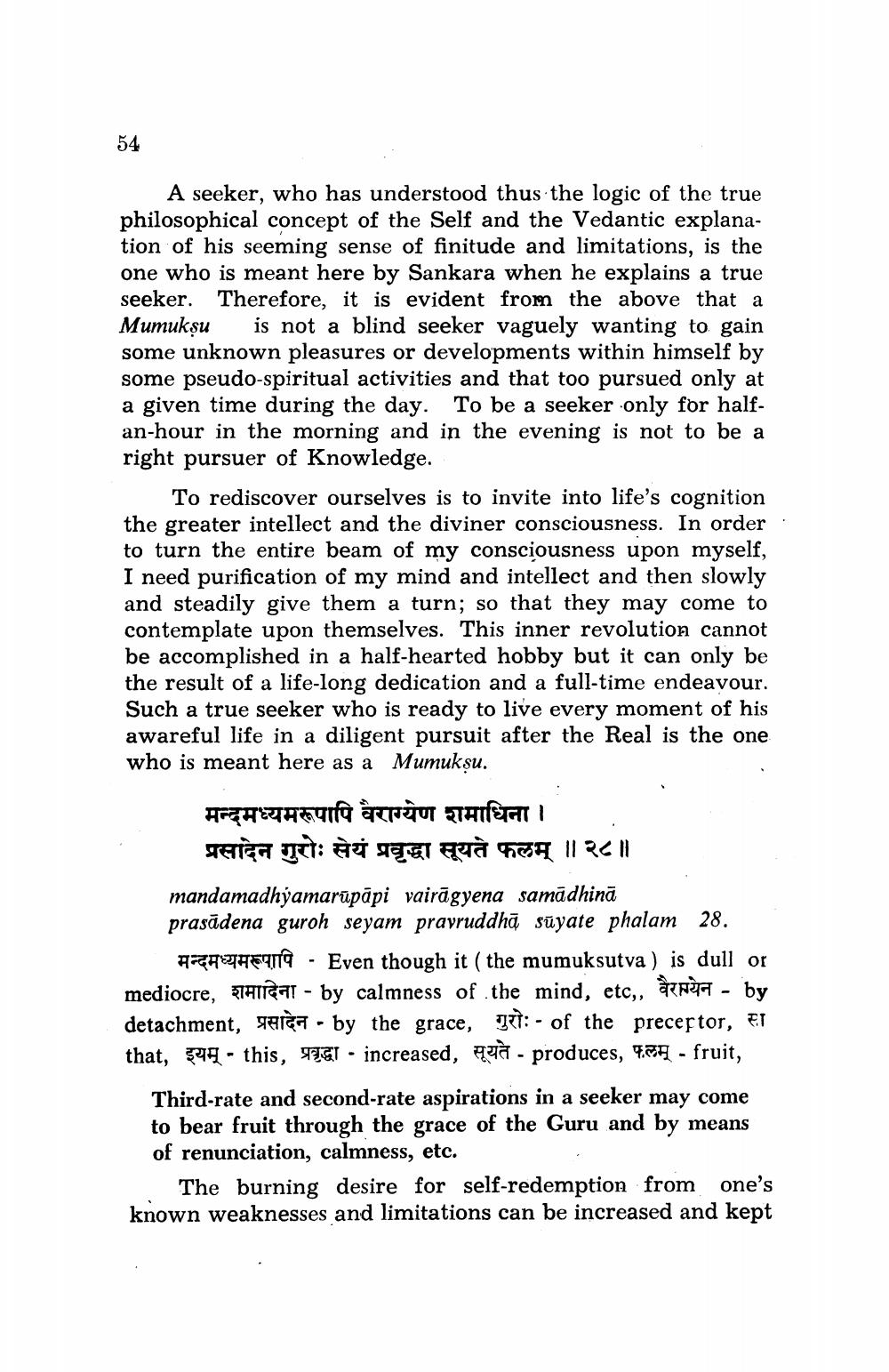________________
54
A seeker, who has understood thus the logic of the true philosophical concept of the Self and the Vedantic explanation of his seeming sense of finitude and limitations, is the one who is meant here by Sankara when he explains a true seeker. Therefore, it is evident from the above that a Mumuksu is not a blind seeker vaguely wanting to gain some unknown pleasures or developments within himself by some pseudo-spiritual activities and that too pursued only at a given time during the day. To be a seeker only for halfan-hour in the morning and in the evening is not to be a right pursuer of Knowledge.
To rediscover ourselves is to invite into life's cognition the greater intellect and the diviner consciousness. In order to turn the entire beam of my consciousness upon myself, I need purification of my mind and intellect and then slowly and steadily give them a turn; so that they may come to contemplate upon themselves. This inner revolution cannot be accomplished in a half-hearted hobby but it can only be the result of a life-long dedication and a full-time endeavour. Such a true seeker who is ready to live every moment of his awareful life in a diligent pursuit after the Real is the one who is meant here as a Mumuksu.
मन्दमध्यमरूपापि वैराग्येण शमाधिना ।
प्रसादेन गुरोः सेयं प्रवृद्धा सूयते फलम् ॥ २८ ॥
mandamadhyamarāpāpi vairāgyena samādhinā prasadena guroh seyam pravruddha suyate phalam 28.
Even though it (the mumuksutva) is dull or mediocre, शमादिना - by calmness of the mind, etc,, वैरम्येन - by detachment, प्रसादेन - by the grace, गुरो:- of the preceptor, सा that, इयम् - this, प्रवृद्धा increased, सूयते - produces, फलम् - fruit,
Third-rate and second-rate aspirations in a seeker may come to bear fruit through the grace of the Guru and by means of renunciation, calmness, etc.
The burning desire for self-redemption from one's known weaknesses and limitations can be increased and kept




